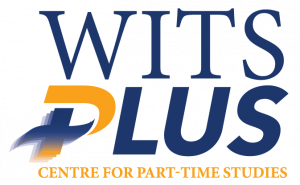When it comes to effective adult learning, Wits Plus knows it involves more than a chalkboard and lectures
Whether it’s on-the-job training, a workshop, informal classes or formal education, most adults (aged 25 and older) will do some form of learning after secondary school. That learning tends to follow the same approach as what they were exposed to as children. But, while a chalkboard, worksheets and a person talking at the front of a room may be what many people experienced in school, is this necessarily the best way to approach adult learning?
The short answer is ‘No’.
Three learning domains
Research has determined that most adults learn best through a blend of activities that promote the three learning domains, namely cognitive, affective and behavioural. Cognitive refers to knowledge (for example, lectures and discussions) or a body of subject matter; affective refers to attitudes and beliefs (such as consensus-seeking activities); and behavioural refers to practical application (for instance, role play and simulations). A good learning (including training) programme incorporates tasks that promote a combination of these domains, while including an adult’s prior experience and knowledge, thereby facilitating a more successful learning experience.

Adult learners’ experience
Unlike children, adults come to learning with prior knowledge, whether it be from formal or informal education, or from life experience. Adults generally gain more from learning/training when they can draw on their past experiences and knowledge, and validate their learning based on what they already know, which adds greater context for them in learning. Most adults tend to prefer learning through tasks, in the context of common tasks adults need to perform at work or elsewhere.

Readiness to learn
Another characteristic of adult learners is that they need to be ready to learn. For many adults, this takes place as they become aware of a knowledge or skills gap at a particular moment in their personal or professional lives.
Although some adults are forced into learning/training, many choose to learn to meet personal and/or career goals. For both groups, though, understanding why something is important to know or do is often a core need. After all, they are there to learn something new or become certified in a particular field.
For most adults, being able to apply new principles, skills or knowledge immediately makes their learning/training more effective. Thus, learning that has immediate relevance and impact to their job or personal life tends to be most appealing for adults.
So, how does this translate into learning plans?

Learning plans
It’s seldom effective, or reasonable, to have a one-size-fits-all approach to training for every employee in an organisation. Personalised learning and development plans based on what is most relevant to the individual – or a group in a similar role – tend to be more successful than a singular plan designed for all staff.
Learning needs to be customised to each person’s needs. Doing so involves careful consideration and discussion with the individual to ensure that the training addresses their actual needs, and not their perceived needs. Thus, doing an effective needs analysis before starting training can save organisations money in the long run. For adults who enrol privately in learning opportunities, sitting down with a knowledgeable and experienced adviser to develop a suitable learning path can be just as beneficial as the needs analysis that an organisation would do.
So, whether an individual is looking at a learning programme or further training for themself or for a group of employees, consider the approach to training: does it cater to how adults learn? It is important to choose an interactive, experiential approach that meets their needs, rather than just another chalkboard with a teacher at the front of the room.
Flexible and part-time study
Wits Plus is the Centre for Part-time Studies at Wits University and offers selected part-time Wits undergraduate degrees and postgraduate programmes, as well as business and language short courses.
Collaboration with Wits Language School, Wits DigitalCampus and Wits Online means that flexible study options are further enhanced and continue to expand to meet the changing needs of professionals and mature adults who require their studies to fit within their lifestyles and careers.
The Wits Plus portfolio of business-focused short courses and language courses can also be customised to be delivered in-company for groups of employees.
Contact details
+27 (0)11 717 9510
[email protected]
www.wits.ac.za



